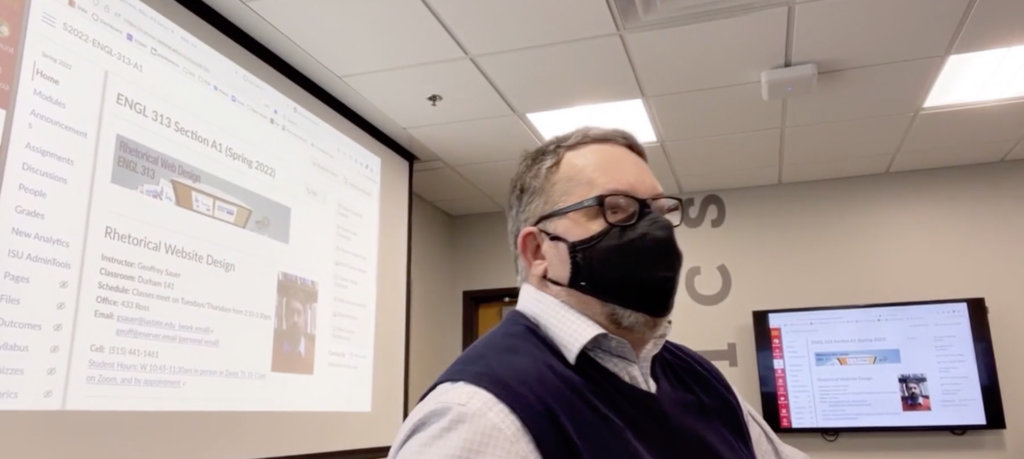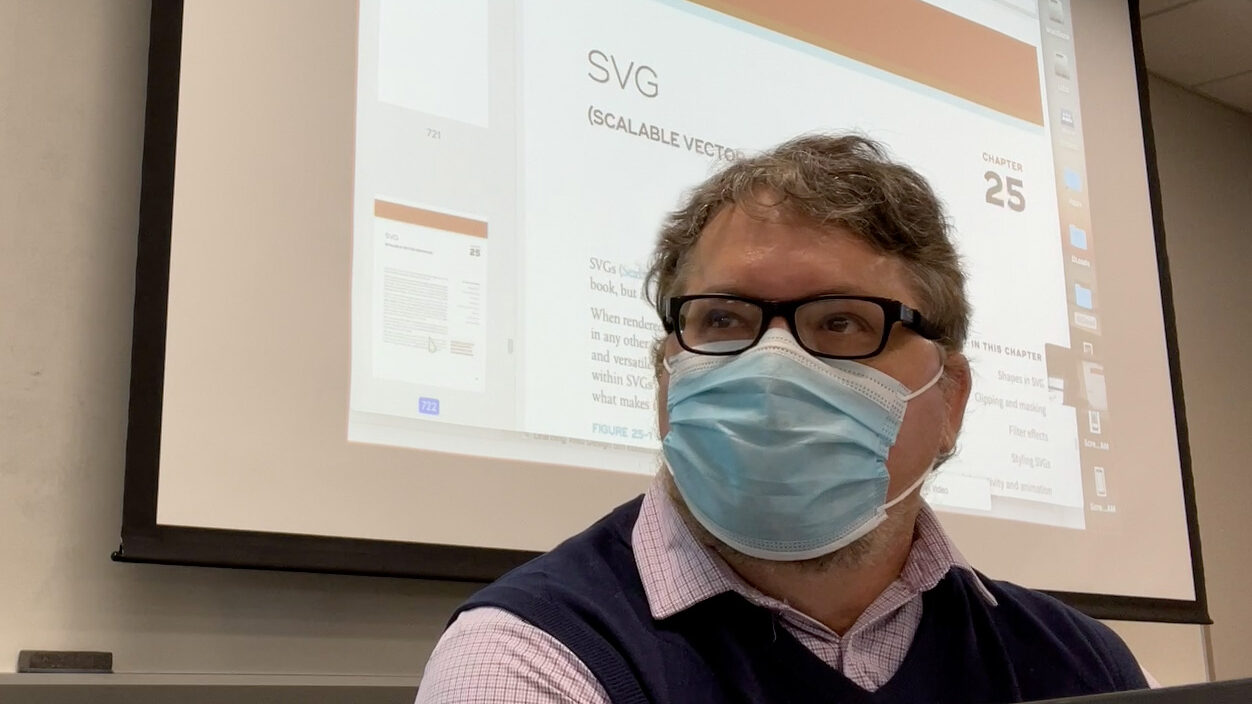I have taught web design and development since the early 1990s, as part of my work in rhetoric programs at three research universities. Over that period I have participated in (and even led) award-winning digital humanities projects, worked on W3C committees which defined the protocols and standards for web content, and directed websites which have hosted more than 2.5 billion ‘hits.’ But in this past year I have heard, more than ever, students asking why web design is being taught in an English department?
In this post, I will argue why this question, when we hear it, must be taken seriously—why students, colleagues, and administrators need to understand how academic programs in rhetoric are (and should be) central to online cultural production, and why the tacit but unsubtle insults within these queries represent a manifest danger to the fields of rhetoric and English as a whole.

I have developed several answers to this question, with different advantages for specific audiences. Here I will discuss three I keep handy for conversational use, the strengths and weaknesses of each, and will argue that as a field we should consider future research to develop both disciplinary and institutional ‘best practices’ for describing digital composition to people who don’t yet expect digital expertise in our courses.
One answer I use, most useful to people who have traditional expectations of English departments, is to propose that English has always prepared students to produce culture. In the eighteenth century this involved writing logical treatises and early novels; in the nineteenth century it added writing poetry and popular essays; in the twentieth century it added short fiction and creative nonfiction. Today, a significant percentage of cultural production is created online, and it’s entirely appropriate that English departments continue to teach students how to create current genres. This answer is useful, though it implies that our digital rhetoric courses have the time to place digital work in historical contexts (something a bit difficult to accomplish in a 16-week course for students new to web technologies).
Another answer, which I offer to rhetorical scholars who don’t yet work often in digital, argues for our continued relevance to modern workplace needs. It suggests that the rise in rhetoric as a field since the 1980s has come from wanting English departments to support practical work, and that we can keep ourselves relevant to administrators and funding agencies by continuing to teach useful and practical skills. It cites the Bureau of Labor Statics findings that demand for technical writers is expected to grow at a rate of 12% in the decade 2020-2030, that technical writing is consistently rated by Forbes magazine among the best jobs in the U.S. in creative and media careers, and that demand for web developers will grow 13% over the decade 2020-2030. There is a clear need for people who enjoy doing this work, and English departments can provide our majors with skills in demand. This argument benefits from the very strong demand in a post-pandemic world for people who can produce information which suits distance employees. But this argument comes with the responsibility for our faculty and curricula to keep up with best practices in web design and development, which change with impressive rapidity.
Not all arguments for teaching web design have to be philistine, however. A third argument, one I personally find most persuasive in 2022, recognizes the fact that my current department has a highly diverse student population. We have a large number of adult students, many first-generation students; we have more women, trans, NB, and genderfluid students than any but one other department; our students represent more ethnically diverse communities than all but one department in our college. Suggesting that helping these diverse students master skills to create cultural products, and to help diverse voices represent themselves and their experiences to online readers/audiences meets with surprised reactions from audience who have heard my more pragmatic argument from the paragraph above. But of course it’s true, and my primary focus. My students love artistic and creative expression, and supporting students for whom the ability to contribute in this way is new usually meets with support from people otherwise unfamiliar with our students.

But the consequence of all three of these arguments is that it places additional responsibility on digital rhetoric courses to actually teach creative expression, current technical standards, and actually be welcoming to diverse students. Adam Banks, in his 2015 CCCC keynote address, had an enormous impact on me when he suggested that we ‘promote’ traditional persuasive essays to the rank of ’emeritus’—and make room for new, diverse and traditionally-marginalized genres. But if I truly wish to encourage my colleagues to use such arguments to rethink our courses, I must also persuade that we must take seriously our students and the new content these student wish to bring online; this work, I will argue to anyone who wants to listen, has not yet been very adequately been addressed by existing literature in the field.
That’s what makes this so excitiing.
related links:
- Limonczenko, Miranda: “Why English Majors should actually become Web Developers.” Medium (2017).
- Kramer, Jen. “How To Teach Web Design To New Students In Higher Education.” Smashing (2013).

